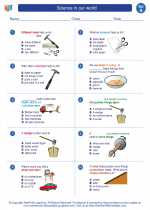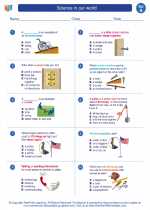Study Guide: Protons
What are Protons?
Protons are positively charged subatomic particles found in the nucleus of an atom. They are one of the three primary particles that make up an atom, the other two being neutrons and electrons. Protons are crucial in determining the identity of an element.
Properties of Protons
1. Charge: Protons have a positive electric charge, which is equal in magnitude but opposite in sign to the negative charge of electrons.
2. Mass: The mass of a proton is approximately 1.672 × 10-27 kilograms.
3. Location: Protons are located within the nucleus of an atom, tightly bound with neutrons.
Role of Protons
Protons play a crucial role in determining the atomic number of an element. The number of protons in the nucleus defines the element's identity. For example, all atoms with 6 protons are carbon atoms, and atoms with 1 proton are hydrogen atoms.
Understanding the Atomic Number
The atomic number of an element is equal to the number of protons in the nucleus. This number is unique to each element and is used to organize the elements on the periodic table. It is denoted by the letter Z in chemical equations and representations.
Conclusion
Protons are fundamental particles that contribute to the structure and identity of atoms. Understanding their properties and role in determining atomic number is essential in comprehending the behavior and characteristics of elements.
[Protons] Related Worksheets and Study Guides:
.◂Science Worksheets and Study Guides First Grade. Science in our world

 Worksheet/Answer key
Worksheet/Answer key
 Worksheet/Answer key
Worksheet/Answer key
 Worksheet/Answer key
Worksheet/Answer key
 Vocabulary/Answer key
Vocabulary/Answer key
 Vocabulary/Answer key
Vocabulary/Answer key
